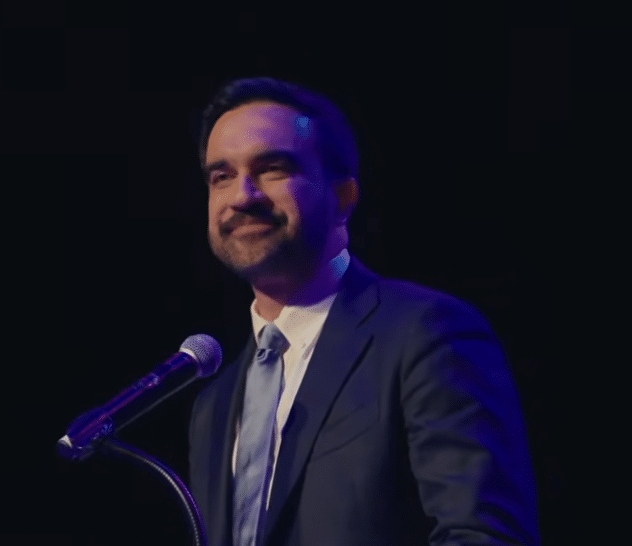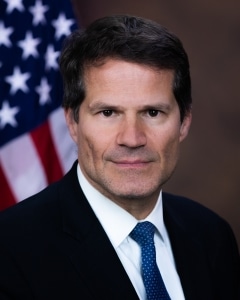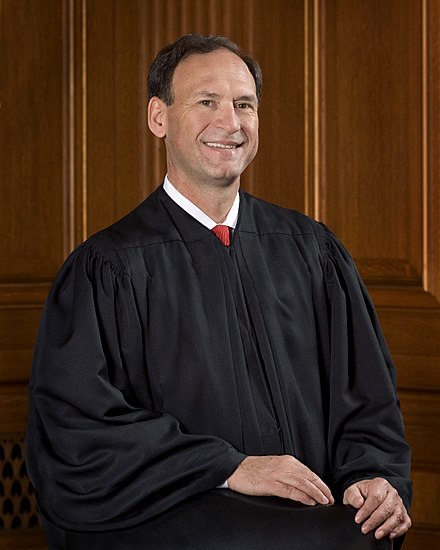I listened to the arguments at the Supreme Court over Trump’s tariffs (my live tweet of John Sauer and the plaintiffs; the transcript), with John Sauer arguing for Trump, Neal Katyal arguing for the small businesses that sued, and Benjamin Gutman arguing for Democratic states that sued.
The primary argument comes down to Katyal’s emphasis: that because tariffs raise revenues, they are part of Congress’ power.
Sauer was stuck, over and over again, attempting to argue that the intent of these tariffs was not to raise revenue, it was to encourage capacities in the US.
And I said there’s two buckets there. One is, first of all, when it comes to the trade deficit emergency, if no one ever pays the tariff but instead they direct their consumption domestically and spur the creation of a rebuilding of our — of our hollowed-out manufacturing base, that directly addresses the crisis. It’s more effective if no one ever pays the tariff. That’s the point of it, really. You know, that’s a fundamental point of it. And that’s one piece of these.
[snip]
That — those tariffs, if no one ever collects them but the threat of imposing those tariffs gets China and our other trading partners across the world to change their behaviors in a way that addresses this, then that’s the most effective use of the policy. So they’re clearly regulatory tariffs, not taxes. They are not — they’re not an exercise of the power to tax. They are the exercise of the power to regulate foreign commerce. And that’s why the statute says “regulate.” It doesn’t say “tax.” It says “regulate.”
Eventually, Katyal pointed out that the government had already bragged in declarations that they planned to make $4 trillion from the tariffs.
This is obviously revenue-raising. Their own brief to the Court says it’s going to raise $4 trillion.
No one talked about coffee, or anything else that the US has no ability to replace. Katyal did raise Switzerland, with which we have a trade surplus.
It’s just that this President has torn up the entire tariff architecture. You know, for example, he’s tariffing Switzerland, one of our allies, which we have a trade surplus, 39 percent. That is just not something that any President has ever had the power to do in our history.
Amy Coney Barrett asked why they had to impose tariffs on Spain and France.
These are imposed on — I mean, these are kind of across the board. And so is it your contention that every country needed to be tariffed because of threats to the defense and industrial base? I mean, Spain, France? I mean, I could see it with some countries, but explain to me why as many countries needed to be subject to the reciprocal tariff policy as are.
Sonia Sotomayor raised the silly tariffs on Brazil for hold Jair Bolsonaro to account.
But the President threatened to impose a 10 percent tax on Canada for an ad it ran on tariffs during the World Series. He imposed a 40 percent tax on Brazil because its Supreme Court permitted the prosecution of one of its former presidents for criminal activity. The point is, those may be good policies, but does a statute that gives, without limit, the power to a President to impose this kind of tax, does it require more than the word “regulate”?
After Sauer claimed there was some oversight to this, Elena Kagan observed that Trump keeps declaring emergencies.
The President has to make a formal declaration of a national emergency, which subjects him to particularly intensive oversight by Congress, repeat — you know, natural lapsing, repeated review, reports, and so forth. It says you have to consult with Congress to the — the maximum extent possible.
JUSTICE KAGAN: I mean, you yourself think that the declaration of emergency is unreviewable. And even if it’s not unreviewable, it’s, of course, the kind of determination that this Court would grant considerable deference to the — to the President on. So that doesn’t seem like much of a constraint.
GENERAL SAUER: But it is a —
JUSTICE KAGAN: And, in fact, you know, we’ve had cases recently which deals with the President’s emergency powers, and it turns out we’re in emergencies everything all the time about, like, half the world.
GENERAL SAUER: Well, this particular emergency is particularly existential, as Executive Order 14257 says, and, of course, no one disputes the existential nature of the fentanyl crisis, which, you know, we had an agreement last week to create progress on, which illustrates the effectiveness of the tariffs tool h
Even Sammy Alito all-but conceded that there was no real emergency here, the basis on which Trump has accrued the power to impose taxes. “Would you have the same suspicion that President trying to achieve a goal other than the raising of money,” in case of an undisputed emergency. Kavanaugh came in a few minutes later raising the India tariffs, asserting blindly that the purpose of them was to end the Russian war (no one asked why Trump set tariffs on India first or why he didn’t just impose sanctions).
I don’t bank lots on my impression of how arguments went. John Roberts was mostly silent, but when he did weigh in, it was always in ways fairly devastating for that argument. My guess, then, is that the women plus Justice Roberts, plus maybe Neil Gorsuch, will rule against Trump, though don’t hold me to it.
There were several other interesting parts of the discussion though. There was the discussion of what happens if plaintiffs win. It came up several times, but close to the end, ACB asked Katyal how reimbursement will work. He sort of answered it wasn’t his problem; he represents six fairly minor plaintiffs, not a Class. It would be a much bigger problem for the states, which probably make up half of imports to the US. Plus, as Bloomberg laid out, other businesses have, in recent days, been suing in order to accelerate the process of getting reimbursed. Katyal even suggested maybe Congress can straighten this out.
MR. KATYAL: We don’t — we don’t deny that it’s difficult, but I think what this Court has said in — in — in the McKesson case in 1990, a serious economic dislocation isn’t a reason to do something. Northern Pipeline, you guys stayed your decision for a while in order to let the congressional process unfold. There may be a congressional process here as well.
This Congress?!?!
The point being, we’re at the point of Trump 2.0, in what may be — now appears to be likely to — be the first area where the Court reverses one of Trump’s abusive power grabs. And it has to be a consideration of how to unfuck the problems Trump caused because courts (in this case, lower courts, but usually, it’s the Supreme Court) allowed Trump to continue abusing power while matters were litigated.
Another concern, and even Sammy Alito expressed it (!!!!), was whether Congress could ever claw back the authority to tariff if it is lost here. Here’s how Gorsuch first raised it.
JUSTICE GORSUCH: Okay. You emphasize that Congress can always take back its powers. You mentioned that a couple of times. But don’t we have a serious retrieval problem here because, once Congress delegates by a bare majority and the President signs it — and, of course, every president will sign a law that gives him more authority — Congress can’t take that back without a super majority. And even — you know, even then, it’s going to be veto-proof. What president’s ever going to give that power back? A pretty rare president. So how — how should that inform our view of delegations and major questions?
[snip]
JUSTICE GORSUCH: Fair enough. As a practical matter, in the real world, it can never get that power
The questions that resonated the most came from Gorsuch (though I suspect he sounded more gung ho against the government in arguing against Sauer than he necessarily is). At one point, he tried to get Sauer to see the risk that a Democratic President would just impose huge tariffs to address a climate change emergency.
Could the President impose a 50-percent tariff on gas-powered cars and auto parts to deal with the unusual and extraordinary threat from abroad of climate change?
GENERAL SAUER: It’s very likely that that could be done, very likely.
JUSTICE GORSUCH: I think that has to be the logic of your view.
GENERAL SAUER: Yeah. In other words, I mean, obviously, this Administration would say that’s a hoax, it’s not a real crisis, but — but, obviously —
JUSTICE GORSUCH: I’m sure you would.
Sauer pretty much dodged that question, stating that this Administration would declare it a hoax, but that would be of not interest if he weren’t in the Administration. Ketanji Brown Jackson followed up to lay out the problems of claiming the courts have no review.
JUSTICE JACKSON: Let me just ask one more question about the unusual threat. So, in your conversation with Justice Gorsuch that we had, the climate change tariff hypo and you indicated that there would be challengers to the notion that that was an unusual and extraordinary threat, and I’m just wondering, under your position, would they be able to make a legal challenge? Are you saying the Court would not be able to review that concern?
GENERAL SAUER: On that particular hypothetical, I think I said that would be a question for Congress.
JUSTICE JACKSON: So not a court?
GENERAL SAUER: Yeah. I don’t — in other words, that wouldn’t be the sort of thing the courts are going to weigh into, is this really an emergency. You know, that would not be — probably very unlikely. That would be a situation where at least there would be very, very, very deferential judicial review of that kind of determination, a legal dispute, but —
But even before that Gorsuch pointed out that if Congress could trade away its authority to tax, they could trade away their authority to declare war.
JUSTICE GORSUCH: General, just a few questions following up on the major questions discussions you’ve had. You say that we shouldn’t be so concerned in the area of foreign affairs because of the President’s inherent powers. That’s the gist of it, as I understand it, why we should disregard both major questions and nondelegation. So could Congress delegate to the President the power to regulate commerce with foreign nations as he sees fit —
GENERAL SAUER: We don’t —
JUSTICE GORSUCH: — to lay and collect duties as he sees fit?
[snip]
JUSTICE GORSUCH: But you’re saying we shouldn’t look —
GENERAL SAUER: He has broad powers in this very narrow assignment.
JUSTICE GORSUCH: — we shouldn’t be concerned with — I want you to explain to me how you draw the line, because you say we shouldn’t be concerned because this is foreign affairs, the President has inherent authority, and so delegation off the books more or less.
GENERAL SAUER: Or at least —
JUSTICE GORSUCH: And if that’s true, what would — what would prohibit Congress from just abdicating all responsibility to regulate foreign commerce, for that matter, declare war to the President?
[snip]
JUSTICE GORSUCH: Can you give me a reason to accept it, though? That’s what I’m struggling and waiting for. What’s the reason to accept the notion that Congress can hand off the power to declare war to the President?
GENERAL SAUER: Well, we don’t contend that. Again, that would be —
JUSTICE GORSUCH: Well, you do. You say it’s unreviewable, that there’s no manageable standard, nothing to be done. And now you’re — I think you — tell me if I’m wrong. You’ve backed off that position
Again, I’m not sure my read of Gorsuch has much salience. But we are at the stage — as Trump continues to murder-bomb people on a three degree of separation in an undeclared not-war not-drug action — where a right wing Justice asks whether Congress can cede their most fundamental authorities.
And where another one asks how we start to unfuck the damage Trump has already done.





